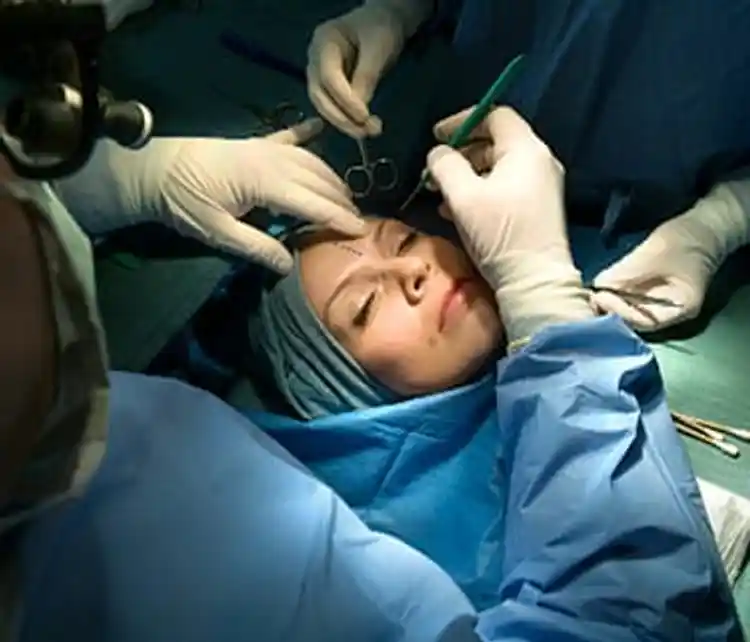Risks of Cosmetic Surgery

Hide Video Transcript
Video Transcript
Narrator
Should I worry about anesthesia and other surgical risks? Robert Kotler, MD
I think people do have concerns about anesthesia. Often, they don't even come to the forefront, but during the course of the consultation, that type of fear is expressed. As a matter of fact, we have 7 key questions that we ask the patient, concerns, that we call the 7 big concerns and one of them is are you concerned about the risks, particularly the anesthesia, and I think it's very reasonable. After all, these are your children and mom isn't about to have her appendix burst, where she has to run into the operating room. There's no choice there. This is elective. You do it by choice, you do it because you want to. Well the answer is that you don't get to the operating room unless you've passed through several gates of safety. Robert Kotler, MD (cont.)
The first gate is when you consult with the cosmetic surgeon, he's going to ask about your health, and if you're a 4 pack a day smoker and you've had 2 heart attacks, it's going to be a short consultation, because you're not a satisfactory candidate. So we look at candidacy. Robert Kotler, MD (cont.)
Now the second gate is before you can get on that operating table, the next appraisal of your health takes place when you have a physical by your own doctor. Your own doctor knows you. He has last year's cardiogram. He may have your cardiogram from 20 years ago. Great. Because he's going to make an independent, objective evaluation. He has no stake in all of this. He's there to serve you. He's not interested so much in the cosmetic result as that you be safe going through it, and he's going to check your cardiogram, and your chest x-ray and your blood counts and make sure everything is right, so if he says everything is okay, great. Robert Kotler, MD (cont.)
And the third gate you have to pass through is the doctor anesthesiologist or nurse anesthetist who is going to attend to you. And by the way, that is where the safety issue comes home. When you have an anesthesia specialist who is sitting as close to you as you are to me in the operating room, and is doing nothing but watching your pulse, your blood pressure, making sure everything is right, you're under a very, very safe circumstance. You're getting more oxygen going into your body from that big $100,000 computerized anesthesia machine than you are breathing room air. Robert Kotler, MD (cont.)
And, you basically are having an operation that isn't that invasive anyway, because cosmetic surgery only deals with the surface structures, the skin, the underlying you know the fatty and muscle tissue, maybe in the nose, it's the bone and cartilage but you're not entering the chest cavity, you're not entering the abdominal cavity. It's kind of skin and associated structures, which means that the anesthetic need not be as deep, nor therefore as complicated and risky. Robert Kotler, MD (cont.)
And the other factor that people probably do understand, is today anesthesia is safer than ever because of the monitoring, the high tech. The great gift of the space program was the development of miniaturized circuitry to be able to determine how well the patient's normal physiology is, in other words, how good is the heart, how much oxygen is going in, how much carbon dioxide is coming out, what's the blood pressure? It's all now read by a computer, and even before there would be a demonstrable change in the patient's condition, the computers detect it. Robert Kotler, MD (cont.)
So, with anesthesiologists there, literally hand on the pulse and a high tech helper in an environment that by the way has the same back up, has the same safety precautions as a hospital. A licensed or accredited outpatient surgery center must meet the same safety standards as a hospital. They have to have all the back up. The cardiac life supports systems, everything, has to be there. So, if you've got an anesthesiologist that said you were okay, and an internist that said you were okay, you pass those tests and now you're in a very controlled environment with all the modern safety equipment and because you are a healthy person, the chances of having a problem is far less than getting there on a freeway. 
